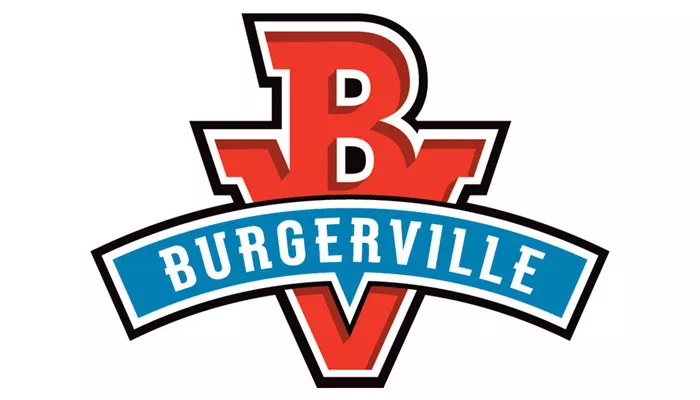Burgerville is a beloved fast-food chain in the Pacific Northwest, known for its commitment to local ingredients and community values. Founded in 1961, Burgerville has become a staple for residents in Oregon and Washington. Among its popular offerings are the onion rings, a crispy, golden side that pairs perfectly with their burgers. This article delves into the history of Burgerville’s onion rings, exploring how long Onion Rings have been sold and their evolution over the years.
The Origins of Burgerville
Burgerville was established by George Propstra in Vancouver, Washington, on March 10, 1961. The first restaurant opened with a simple menu that included burgers, fries, and soft serve ice cream. It quickly gained popularity among local teenagers and families due to its affordable prices and speedy service. Over the years, Burgerville expanded its menu to include seasonal items that highlight local produce, which is a hallmark of the brand’s philosophy.
The Introduction of Onion Rings
While specific details about when onion rings were first introduced to the Burgerville menu are not widely documented, it is known that they became a staple in American fast food during the 1950s and 1960s. Fast food chains began adding onion rings to their menus as a popular side item alongside fries. Given Burgerville’s commitment to quality and local sourcing, it is likely that their onion rings were introduced shortly after the chain’s inception.
The Evolution of Onion Rings at Burgerville
Burgerville has adapted its onion ring recipe over the years to reflect changing tastes and preferences. Initially, like many fast-food chains, Burgerville likely used a standard batter for their onion rings. However, as consumer demand for higher quality ingredients grew, so did Burgerville’s focus on sourcing locally grown onions.
In recent years, Burgerville has featured Walla Walla onion rings made from sweet Walla Walla onions sourced from local farms. This not only supports regional agriculture but also enhances the flavor profile of their onion rings. The use of Walla Walla onions is particularly significant because these onions are known for their sweetness and mild flavor, making them ideal for frying.
The Popularity of Onion Rings
Onion rings have long been a favorite among fast-food customers. Their crispy texture and savory flavor make them an appealing side dish or snack. At Burgerville, onion rings are often enjoyed alongside burgers or as part of a meal deal. Their popularity can be attributed to several factors:
Crispy Texture: The crunchiness of well-prepared onion rings provides a satisfying contrast to the softness of burgers.
Flavor: The sweet onions used in Burgerville’s rings offer a delightful taste that complements various dipping sauces.
Versatility: Onion rings can be enjoyed alone or paired with other menu items, making them a flexible choice for diners.
Community Engagement And Local Sourcing
Burgerville’s commitment to local sourcing extends beyond just its onion rings. The chain prides itself on using ingredients from Pacific Northwest farms whenever possible. This practice not only supports local economies but also ensures that customers receive fresh and high-quality food.
The use of locally sourced ingredients has become increasingly important in the food industry as consumers become more aware of where their food comes from. By featuring Walla Walla onions in their onion rings, Burgerville aligns itself with this trend while offering customers a unique taste experience that reflects the region’s agricultural heritage.
Nutritional Aspects of Onion Rings
While onion rings are undeniably delicious, they are also considered an indulgent treat. Typically deep-fried, they can be high in calories and fat. However, Burgerville has made efforts to provide transparency regarding nutritional information on its menu items.
Customers looking for healthier options can enjoy onion rings in moderation or pair them with lighter menu choices such as salads or grilled items. Additionally, Burgerville’s focus on using trans fat-free oils demonstrates its commitment to healthier cooking practices.
Conclusion
Burgerville’s onion rings have been an integral part of its menu since the early days of the chain. Their introduction likely coincided with the rise of fast food in America during the 1960s. Over time, these crispy delights have evolved to feature locally sourced Walla Walla onions, reflecting both quality and community engagement.
As Burgerville continues to celebrate its rich history and commitment to local sourcing, customers can enjoy delicious onion rings that not only satisfy cravings but also support regional farmers. With every bite, diners partake in a culinary tradition that has stood the test of time while embracing modern values of sustainability and quality.
In conclusion, Burgerville’s onion rings represent more than just a side dish; they embody a connection to local agriculture and community values that make dining at this fast-food chain a unique experience. Whether enjoyed alone or alongside one of Burgerville’s famous burgers, these onion rings remain a beloved staple for many loyal customers across the Pacific Northwest.
Related topics:
- What Is Included in A Subway Meal Deal?
- What Are Subway’s 12 New Sandwiches?
- How Much Is A Jersey Mike’s Franchise?

